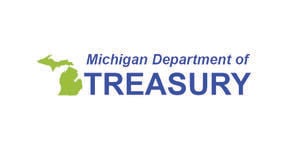
Treasury Has Protected Thousands of Taxpayers Through Security Measures
LANSING, Mich. -- With Michigan's Cybersecurity Awareness Month in October coming to a close, the Michigan Department of Treasury is reminding Michiganders to be cybersecurity aware and prepared to fight tax-related identity theft.
Cybercriminals are constantly using new tricks and tactics online to obtain personal information so they can fraudulently file state income tax returns and claim refunds on behalf of unsuspecting taxpayers. Often, the taxpayer is already a victim of identity theft when a cybercriminal attempts to claim a state tax refund.
"Vigilance is really the key to fighting cybercrime," said Glenn White, who oversees Treasury’s Revenue Services programs. "Always examine the calls, emails and texts you receive to ensure they're from a verified source. If you have questions about your taxes or suspect you may be a victim of tax-related identity theft, always feel free to contact us for assistance."
To be cybersecurity aware and prepared to fight tax-related identity theft:
- Only connect to the internet over secure, password-protected networks.
- Do not click on links or pop-ups, open attachments or respond to emails from individuals you don't know.
- If you are unsure of the email sender, type a website name by hand rather than clicking on an embedded link.
- Do not respond to online requests for personally identifiable information. Most organizations--banks, universities, companies, Treasury--do not ask for your personal information over the internet.
- Limit who you share information with by reviewing the privacy settings of your social media accounts.
- Trust your intuition. If you think an offer is too good to be true, then it probably is.
- Password-protect all user accounts and devices that connect to the internet with strong passwords at least 12 characters long.
- Do not use the same password twice. Choose a password that means something to you and only you. Change your password on a regular basis.
- If something seems suspicious, report it to the proper authorities.
Cybercriminals typically try to create a sense of urgency to incite an immediate response from taxpayers. For example, a scammer may allude to taking criminal actions against you for failing to respond.
As an additional layer of taxpayer protection, Treasury sends confirmation quiz letters to some taxpayers to help prevent the loss of state income tax refunds.
Since 2017, Treasury’s increased security measures have protected more than 10,800 taxpayers who confirmed their identity was stolen and used to request state of Michigan income tax refunds. This prevented more than $36.9 million from being distributed to scammers.
Taxpayers should follow the directions if a confirmation quiz letter is received.
Individuals interested in learning more about how to protect themselves and their families online should visit the Michigan Cyber Initiative website at Michigan.gov/cybersecurity. This website provides information ranging from how to practice proper cyber "hygiene" to learning about what to do if you are a victim of a cybercrime.
To learn more about the state Treasury Department, go to Michigan.gov/Treasury or follow @MITreasury on X, formerly known as Twitter.














